Interview with Michael Mayer (Kompakt Records)
Michael Mayer (Kompakt Records) at Babylon Istanbul
Born in 1971 in Black Forest/Germany, Michael Mayer is a workaholic with German discipline. As a co-owner of Germany’s outstanding techno flagship Kompakt based in Cologne, he selects the imprint’s forthcoming releases, works with the label’s artists and oversees Kompakt’s distribution arm with managing over 50 record labels. Mayer manages to combine turbulent label work during the week and travelling weekends around the world for DJing in front of thousands of techno aficionados since the 90s. One thing is for sure, Mayer loves challenges and puts 100% of his heart and soul into everything he does.
We took the chance of the Red Bull Music Academy event with Michael Mayer at Babylon Istanbul and invited him to be our first international interviewee. Apart from having the opportunity to welcome a significant contributor to all stages of the electronic music movement, it was a pleasure to became acquainted with his humorous and humble personality while discussing DJing, Kompakt and Cologne, current hip sounds, clubs, record stores, scenes in Ibiza, US and Turkey among others. I personally enjoyed every minute of the interview, hope the same for you when you are reading.
How was your first contact with music?
I grew up in Germany’s Black Forest region, rather a countryside that benefitted, however, from its favourable location in a tri-border area with Germany, France and Switzerland. Hence, there was some kind of activity around. Furthermore, there was an award-winning super club of these days nearby called Drops that received accolades like “best equipped club Europe” or had the first four-colour laser show in Germany. As chance would have it, the Resident DJ was, at that time you only had Residents, coincidentally a neighbour of mine. When I was 12 years old, I remember that he gave me a tape of him and I was listening for the first time to this kind of music like Italo-Disco and High Energy that immediately blew me away. Since then this sound was always in my mind and I was listening to it on every occasion even at doing homework for school.
What influenced you during your adolescence?
In the mid 80s, the owners of Drops launched a pirate radio in France as well. The reason behind was that receiving a radio license in Germany is subject to high requirements and is related to substantial costs. In addition, German authorities take decisive actions against pirate broadcasting. Hence, they started the pirate radio in France and broadcasted over to Germany while circumventing local regulations. The program of the radio consisted only of Italo-Disco and High-Energy stuff that was exactly the music they played in the club at that time. I can say this was the soundtrack of my youth.
“Experiencing for the first time laser shows, fog, strobes etc. completely thrilled me. I will never forget these first impressions.”
When did you actually start DJing?
When I was 14 years old, I was allowed to enter the temple of my desire: the children’s disco on Sunday afternoon (laughter). Experiencing for the first time laser shows, fog, strobes etc. completely thrilled me. I will never forget these first impressions. Being soaked into this atmosphere and energy, I started to organize birthday and school parties.
How did you get the chance to have your first residency in 1990?
When I was 18 years old, I started my own radio show at a local radio. It is not much known, but it was actually the first radio show with a live DJ mix in Germany even before the popular HR 3 Clubnight. I became more and more known in the region eventually resulting in my first residency in a province club. After a little while, I was heavily influenced by the first wave of House and Techno from the US and started to play more and more stuff of this new kind of music in the club. The owner of the club, however, appreciated my excursions less and after six months they fired me because I did not want to play commercial pop songs from artists like Sidney Youngblood or similar song requests. Funnily, the owner called me circa ten years later and admitted that they might have done a mistake and showed regret. It was a kind of delayed gratification (laughter).
How does it feel to have three weekends off in a row after 15 years?
Well, I have family with my two children and my wife. The time was purely intended to relax. We did not go on vacation or something like this. I just stayed at home and enjoyed every minute with my family.
In the beginning of the 90s you were part of a DJ collective called Friend Xperiment with your friends Tobias Thomas, Mitch and Armin. After a while, the collective dissolved because Armin and Mitch moved to Berlin while Tobias relocated to Cologne. Why did you actually prefer Cologne to Berlin?
I knew already the scene in Berlin before moving to Cologne. Mitch opened the record store Melting Point and Armin started parties at Pfefferbank Club, Tacheles and founded later among others the Melt festival. Hence, I had some exposure to the Berlin scene. When I was playing there, however, I always felt that even when you go to the rest room while playing, someone will take the chance and jump behind the decks. The dog-eat-dog mentality there was more intense and this kind of competiveness did not match with my personality. Tobias had moved already to Cologne and when I visited him for the first time, I was quite impressed by the positive vibe in the city. The scene in Cologne offered much more room for techno and for our understanding of music. In these days, you actually had two local players with Whirlpool Production (Editor’s note: Hans Nieswandt, Eric D. Clark and Justus Köhncke) and the Warehouse Club. Hence, I was much more attracted by Cologne with its opportunities. I finished my civilian service and followed Tobias six months later.
“You never knew what comes next or as simple as the name indicates: it was a total confusion.”
You and Tobias launched one of Cologne’s oldest and most renowned electronic dance music nights called “Total Confusion” at Studio 672 in July 1998. Over the past 15 years you hosted local newcomers as well as international renowned artists. Can you describe the influence of this party on your career and how the vibe at Total Confusion differentiated itself from other places?
Total Confusion was not the first club night we had but it was definitively the one where we pushed our boundaries at most. The whole night was built around Tobias and me. We actually hosted guests once in a month. Hence, we were able create our own unique musical vision without making compromises. The only rule was not having a rule for the night. Sometimes we played Ambient until 2 o’clock in the night, we may fired off Schranz at the prime time and finished the night with deeper stuff like Disco, Pop or whatever suited at that moment. You never knew what comes next or as simple as the name indicates: it was a total confusion.
1998 seems to be a year of change, right?
Absolutely. We decided to combine all our activities as record store, label, distribution work etc. under the roof of Kompakt. I released my first mix CD “Kompakt Köln presents Michael Mayer” and we started Total Confusion. Actually, the whole city was in an atmosphere of departure. Everyone wanted to create something new. Even the scene around Indie and Rock magazine Spex recognized that something was happening there and that Techno has also an intellectual aspect and is not that stupid as initially perceived. All these factors opened the mind of the Cologne scene for new musical paths and contributed essentially to the success of Total Confusion. We had a mixed and open-minded crowd willing to embark on a journey with us while suffering our musical capers (laughter).
Over more than 20 years behind the turntables, you played everything from small clubs to mega festivals. Do you think the ability to play a “storytelling” DJ sets and the attention of the crowd depends on the venue’s size?
I would not say that. In general, I do not distinguish between 500 and 5000 people venues. I always try to play my favorite music. I love to go out on a limb as far as I can and challenge the crowd. Actually, I do not have the music that they want. Hence, the challenge for me is to entertain people and simultaneously introduce them to new music that they usually would not listen to voluntarily. I rather experienced festivals quite positive and would say that you may experiment even more at festival than in small clubs where the DJ booth is just located in a dark corner. The music is perceived in a more intense way because of the mere mass, the energy eventually creating an unique atmosphere.
“Basically, the policy of some clubs is very similar to TV programming. The program is oriented towards the most stupid member of the audience.”
Your DJ sets surprise often with bridging to other genres that you described as “some extra emotion you could not provoke playing all techno”. Do you think the capability to do this at the right time separates outstanding DJs from just being a jukebox? Or is it rather a matter of booking and/or club policy?
Basically, the policy of some clubs is very similar to TV programming. The program is oriented towards the most stupid member of the audience. In the club context, there is a general perception that playing experimental sounds overstrains the crowd and they change over to basic programs. I personally judge this rather as a misperception of the relevant persons in charge and I do not know actually why such a trend started. Some clubs adhere to these concepts, however, and provide solely ultra-functional sound. But I do not think that this reflects the expectations of the crowd in a club. It simple takes the consumer of a creative product, Music or TV program, for a fool.
Most of your bookings are scheduled prime time as the main act. I read a quote of you that if you would begin with the warm up you would play ambient for a while, too. Do you somehow miss the days when DJs used to play all-night?
If you leave it to me, I will definitively play all-night (laughter). I am rather a long-haul DJ. Tiny slots within tight schedules do not matched with my preferences but I still try to adapt myself and contribute my personal note.
Cologne is known for its warm, open-minded people, a high proportion of its population with Turkish background, its gay community and for its Carneval celebrations. How did the city and changes in the city (e.g. move of PopKomm to Berlin in 2003) influence the sound of Kompakt? Would Kompakt sound different if it would be based in a different city?
Indeed, I am actually representing a minority: hetero and German (laughter). I really like Cologne with its diverse background. In order to address your point with the changes in the city: actually, every bigger city in Germany suffered from the increasing popularity of Berlin. Historically, we had a quite decentralized country with a village Bonn as a capital to demonstrate modesty and that such a disaster which eventually resulted in the second World War will never happen again. Having a decentralized country, however, encouraged at the same time the emergence of several unique scenes with their respective characteristics like Munich with Italo-Disco and Detroit-influenced Ultraschall, Disco B and Gigolo, Hamburg with it’s German Pop Academy influencing also the dance floor, Frankfurt with Trance and solid Techno, West-Berlin with Hard Wax that followed rather a traditional approach and bridged early to Detroit as well as Cologne with a more liberal, Afro-American agnostic approach to Techno.
How did the sound of Cologne differ?
The momentum to create something completely new was at strongest in Cologne. The work of Wolfgang Voigt as one of the main protagonists (editor’s note: a.k.a. Mike Inc.) demonstrated that you can produce Acid and Techno also with influences from folk music just as an example. You do not have to limit your creativity and put Techno merely in a context that is solely based on Afro-American mindset.
So do you think US-influenced House and Techno is out-of-date?
No. I grew up with House and Techno from the US and I am thankful for this musical illumination. DJ Pierre is God for me. After a certain time, however, you need to also emancipate yourself from musical limitations and venture to enter other spheres of inspiration as well.
Kompakt has been long associated with minimal techno. You partner Wolfgang Voigt once said in an interview that “51% of the releases have to be techno, the remainder can be everything what appeals”. Do you think that borderlines between genres still exist? I mean some magazines like the German Groove don’t differentiate anymore between house and techno in their review section.
Borderlines may exist, but I do not care about them at all. Separation is something completely boring. Currently there is a big Deep House revival. However, if you listen to the Beatport charts, for instance, you merely find something that reaches the thresholds initially set by the likes of Rick Wade and Rheji Burrell among others. It rather sounds like that the minimal generation of the past years started rediscovering Rhodes etc. after their hardcore ketamine period and try to weave in now more soul into their music. When I look at these magazines with their “Romantic House” titles, I hardly find something innovative about the hype. If I would be a time traveller in the mid 90s and I would travel into the future, the current hip sound would sound to me as Trance. Maybe just played slower. Hence, every discussion about genre borders is obsolete. The main point is that it is fun.
I read that Speicher (a.k.a. Kompakt Extra) was launched in 2002 as a reaction tool- and loop-dominated techno at that time. With a “double-headers, only killers, no fillers”-attitude, the releases of the Speicher series are the ones with the highest commercial success.
Techno at that time was degenerated into a boring high-pitched Todd Terry beat. This was definitively not what we used to feel when listening to Techno. For us, Techno had always a narrative moment with an arrangement, i.e. with a start, a main part and an end. It was never playing a three-decks technical DJ Set that seems to be rather a sport discipline but not music. Speicher was our answer to this super bleak trend. Music is about invoking emotions and not about technical skills.
You started working in the Delirium record store in 1993 and Kompakt is still running the physical and online shop. I assume the record store is very important to you because I read a quote from you as “I am going to defend it until my last drop of blood”.
Yes (laughter). I see a lot of kids at the age of 18 or 20 coming to us. When I speak with them, they tell me that they grew up with downloading the whole catalogue of a label just by a mouse click. This simplicity, however, resulted in that they were lost in a black hole of files and unable to utilize them. Hence, they abandoned downloading files and buy vinyl again. Essential for shopping vinyl is the selection process. You listen to the entire track and not only to 30 seconds. At the same time, it is also an allocation process of your budget. Hence, today’s youth is re-discovering the fun factor at this filtration process, i.e. hunting for black gems and making the decision which one to take home.
I can remember that I was significantly influenced by the taste of the record store’s buyer since he did the pre-selection. You also ordered for the Delirium/Kompakt stores and you are overseeing the distribution arm of Kompakt. How are your experiences?
We started Kompakt distribution at a time when you were also able to broker vinyl via phone. In these days, you called up record stores and while telling the news you played to them new stuff via phone as: “Hey, listen to this. How cool is that?” and the shop owner simply ordered like “Great, send me three copies”. Today, however, it is not like this anymore.
Against the background of increased vinyl sales in the last years: do you think record store have a long future?
Yes, I am actually quite optimistic. Our sales improved over the last years. In general, you also have now less competition since few record stores left. We even have vinyl tourists who jump into their car and drive few hours from the Netherlands, Belgium or France to buy Vinyl at Kompakt.
” I do not think that DJs are honest and telling the true story about Ibiza.”
In few weeks the Ibiza 2014 season begins. In 2006, you and Damian Lazarus tested your “Stink” party concept on the island for three weeks and stopped because it did not exactly fitted in the “high heel and champagne” entertainment concept elsewhere on the island. Do you think the vibe changed after eight years?
Yes, we stopped it because the success was just overwhelming (laughter). Honestly, I am not that close to scene in Ibiza. I played there once last year and it was rather a poor experience. Most of the parties are completely overcrowded, no space for dancing etc. Ibiza is an amazing island with its breathtaking landscape. If you are in a privileged position of being invited to an exclusive after-party at a villa it may be also a nice experience. In general, however, I do not think that DJs are honest and telling the true story about Ibiza. The equation with having success in Ibiza equals to being successful worldwide may be true. It is definitively one of the most important markets for DJs and electronic music. As the word “market” indicates, however, it is also one of the most commercial places. I personally perceive the gastronomy policy, e.g. salt water at rest rooms or horrendous prices like 10 EUR for small water, as completely absurd. I try to avoid such circumstances as much as possible. Hence, I do not have big ambitions to take a role on the island.
Over the next few weeks you will play a two-weeks US-tour. You did an extensive tour back in 2005 playing in an Irish Pub as well as in a place where housewives get their fingernails done in the daytime. I read a quote of you with “Apart from the Detroit, Chicago, New York triangle, …techno is really almost not happening at all there. I feel very sorry for them”. Do you think the US caught up compared to Europe?
Absolutely. The US scene made up substiantial ground over the last few years. I would say that almost every bigger city has a quality club to play now. Apart from the cumbersome immigration procedure, I always enjoyed my time in the US. I really look forward to play there in the coming weeks.
I read in an interview with you that as the A&R of Kompakt you are receiving between 50 – 100 demos per week. How many demos do you actually receive from Turkey?
Surprisingly none. Sometimes it is also not clear, since some of Turkish or Turkish-origin producers are based in Europe or somewhere else. In general, we highly appreciate that someone takes few minutes for a personal note addressed to us when sending a demo. We want to feature personalities and that the respective personality should be picked out in their productions. We do not spend time for listening demos that are addressed as spam mails to all labels worldwide.
How would you describe the clubbing landscape in Istanbul?
I am coming to Istanbul almost every year. I really liked the parties from Onur (editor’s note: Onur Özer) and Batu at Indigo. You always had a mixed and open-minded crowd there. I felt that the vibe changed after Onur moved to Berlin. Over the last few years, I experienced rather that the crowd is dancing less but they also dress up more hip now. I am actually quite optimistic for tonight tough.
With the last question Michael Mayer received also a text message from the booker with “In 15 minutes, it’s your turn”. We went together to the club and he immediately started playing. It was an exciting voyage of great music until the lights went on and people applauded. “Tonight is definitively a turning point”, he said at saying goodbye. Hence, we as EDHID look forward to seeing him again soon in Istanbul.
#MichaelMayer #Kompakt #KompaktRecords #KompaktCologne #House #Techno #Indie #Mantasy #RBMA #RedBullMusicAcademy #EDHID #Istanbul
2 responses to “Interview with Michael Mayer (Kompakt Records)”
Leave a Reply
-
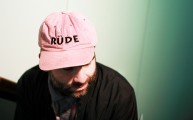
Life is a talk with Ruede Hagelstein
-
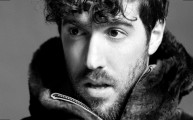
Walk talk with El_Txef_A
-
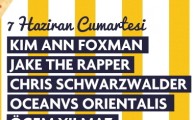
Kim Ann Foxman at Suma Beach Opening
-
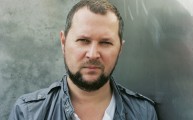
Ballroom talk with Thomas Schumacher
-

Tracking Imprints: Helena
-
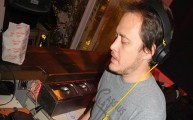
Fuchs Solo at MiniMuzikhol
-
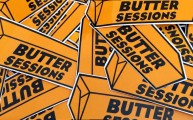
Tracking Imprints: Butter Sessions
-
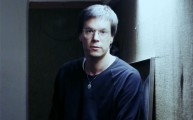
Roman Flügel’s new album “Happiness Is Happening”
-
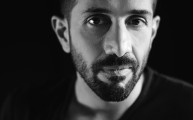
Potion 001 by Murat Tepeli
-
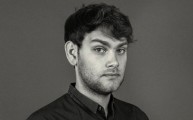
EDHID LONG PLAY: Fort Romeau




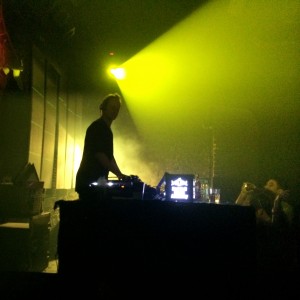
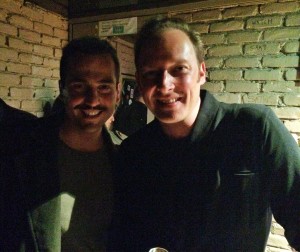
Hey Murat, you did once again a good job! Rock on!
Hey Martin,
highly appreciated, thank you!
Murat